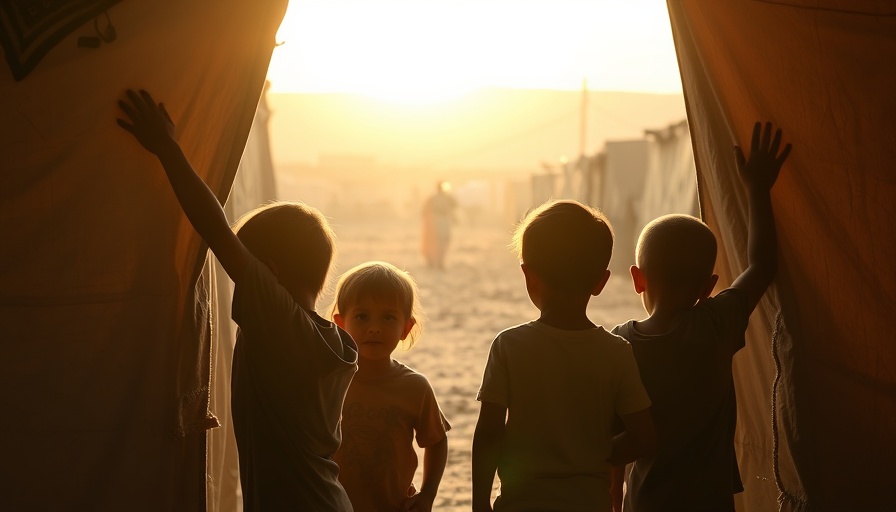
Unraveling Africa's Humanitarian Crisis: Children in Sudan
The humanitarian crisis unfolding in Sudan has reached unprecedented levels, particularly affecting the youngest and most vulnerable. As reported by UNICEF's Sudan Representative Sheldon Yett, children in the most impacted regions are literally 'reduced to skin and bones,' signaling a catastrophic failure not only in humanitarian efforts but in global response mechanisms.
Understanding the Scale of Malnutrition and Health Risks
During his recent visit to areas devastated by violence and famine, Yett detailed harrowing scenes: children living in overcrowded conditions, nursing grave health complications, and facing severe malnutrition. The UNICEF mission highlights that localities such as Jebel Aulia carry a staggering 37% of the malnutrition burden in Khartoum State alone. This stark reality illustrates the profound impact of civil unrest on public health and welfare, demonstrating how conflicts in Africa often exacerbate challenges faced by health sectors.
The Urgency of Action: Security and Humanitarian Access
As the situation deteriorates rapidly, timely intervention remains critical. Yett's observations emphasize a growing urgency to provide safe access for aid organizations. Recent developments indicate that while security conditions may be gradually improving, the necessity for urgent action by global leaders cannot be overstated. Without escalated support and strategic resource distribution, this looming humanitarian disaster risks irreversible damage to a generation.
Global Responsibility: The Role of Policymakers
The international community now faces a pressing choice: to step up and alleviate the suffering in Sudan or risk letting it spiral further out of control. Policymakers and investors must recognize the intertwined nature of humanitarian crises and geopolitical stability. The responsibility extends beyond immediate relief, requiring ongoing commitments to rebuilding and preserving long-term peace and health infrastructures across the region.
Closing Thoughts: A Call for Global Attention
This alarming situation brings to light the critical need for a robust international response that addresses both immediate humanitarian needs and longer-term socio-economic stability. As leaders, policymakers, and investors examine the pathways leading to better governance and humanitarian support in Africa, they must weigh the implications of inaction—not just for Sudan, but for the stability of the entire region. It is imperative that we forge stronger partnerships to avert a complete humanitarian collapse.
 Add Row
Add Row  Add
Add 


Write A Comment